ESL Classes Offered to BU Dining Services Workers
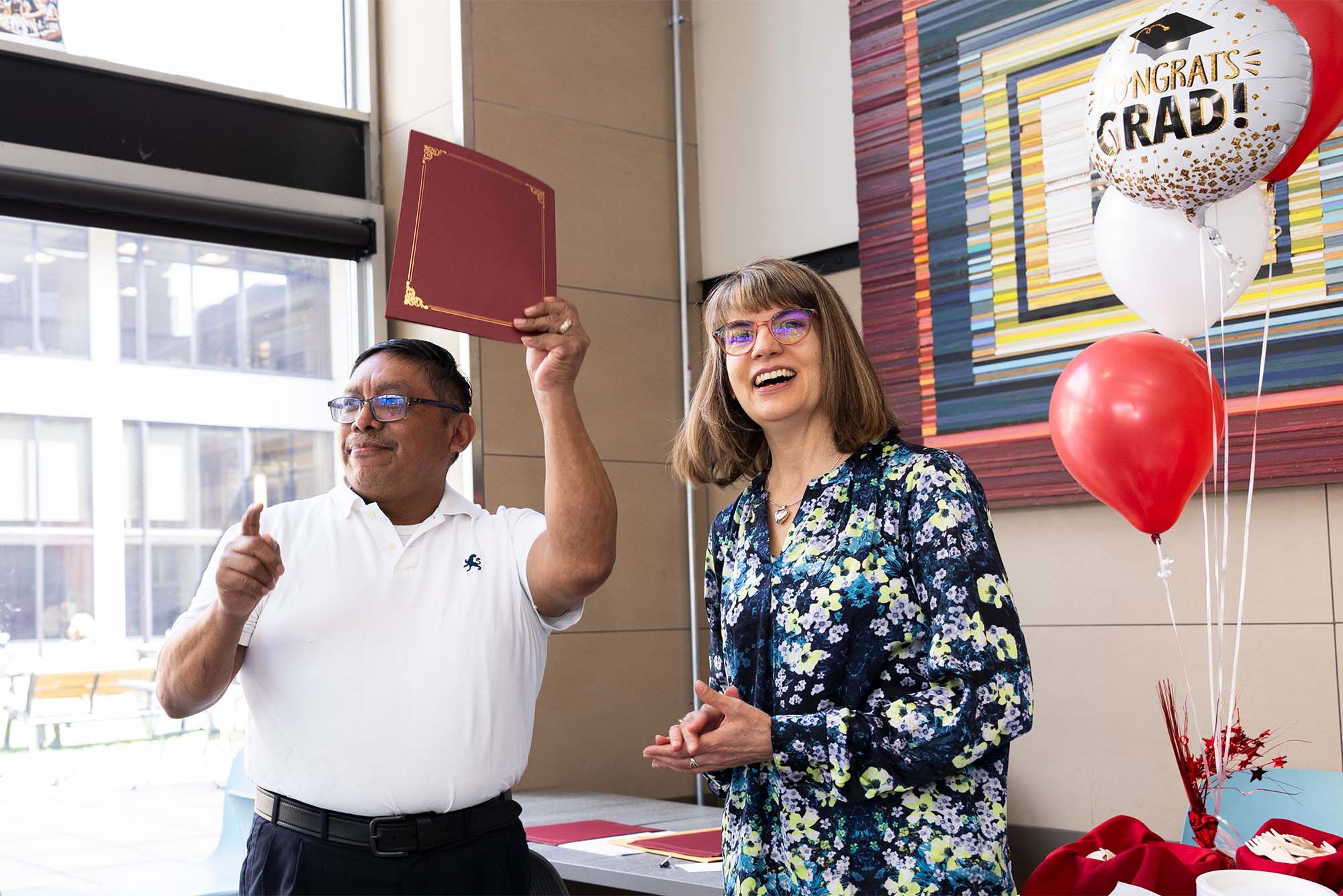
Dining Services worker Carlos Surillo (left), with his completion certificate, alongside instructor Gina Giamei, a CELOP senior lecturer. Photo by Jake Belcher
ESL Classes Offered to BU Dining Services Workers
Recent graduation ceremony celebrated their hard work and commitment
For the last 12 weeks, during the lull between the lunch and dinner shifts at Warren Towers, BU Dining Services employee Kerrine Tang has been working hard to improve her English. Tang, a native Cantonese speaker from Hong Kong and a 16-year Dining Services employee, enrolled in the relatively new BU Center for English Language & Orientation Programs (CELOP) course English for Dining Services.
The program is designed to teach Dining Services employees the essential English language skills they need to do their jobs more efficiently. These skills include writing, vocabulary around cleanliness and sanitation, enhanced communication about allergies and dietary restrictions with customers (i.e., students) and other staff, and understanding written recipes and instructions, as well as a tutorial in the quirks and rules of the English language.
Consider the “th” sound, which exists in virtually no other language, or how certain English nouns (eyeglasses, salmon) are the same whether they are singular or plural. Although English is the most spoken language in the world, it is also considered one of the toughest to learn.
“I took an English class over 20 years ago at my church, but it was all old ladies,” Tang says during a recent break in the class. She wanted to enroll in this class because she knew it could help her better communicate with her manager at Warren Towers. “And my grandchildren,” she says with a smile.
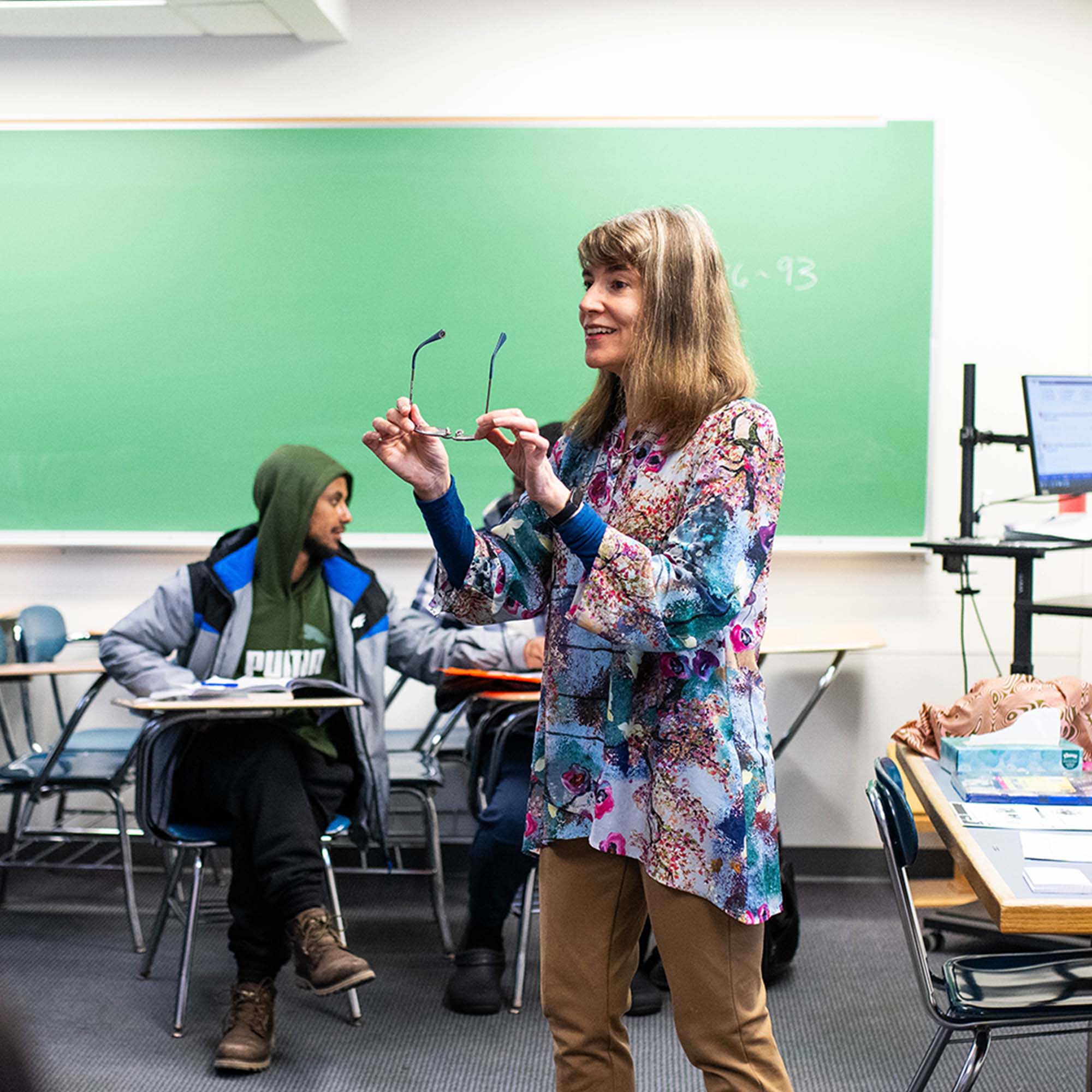
To date, the free twice-a-week program has graduated nearly 50 students in three cohorts—with more eager to start in the fall. There are also talks about creating a second level of the class during future semesters. Dining Services managers, the CELOP team, and perhaps most important, its students, say the program has been a resounding success.
When course instructor Gina Giamei, a CELOP senior lecturer, designed the program last year, she shadowed Dining Services workers to see what language skills they needed. The answer was “everything,” she says: listening skills, speaking, reading, writing, building confidence, and new this semester, a digital literacy component. “I’m cocreating these classes with the students, getting the information from them about what they need,” says Giamei, who has been at CELOP for 18 years and teaching ESL courses for 13 years prior to that. “It’s been a joy to teach them. They are so motivated and so grateful. It makes my job easy.”
It’s been a joy to teach them. They are so motivated and so grateful. It makes my job easy.
“To learn a language while also working at the same time, as well as managing families and personal lives? It’s really difficult,” says Maria Arruda, CELOP managing director. “Some [students] even have two jobs. It’s an amazing accomplishment.” Arruda says that CELOP would love to offer similar ESL workplace programs to other staff departments at BU in the future.
Increasing confidence
The program’s spring cohort had 18 Dining Services employees, whose native tongues included Spanish, Burmese, Cantonese, French, Haitian Creole, and Amharic. Many of the students, who need their manager’s approval to enroll, say they found out about the program through word-of-mouth.
CELOP’s placement tests are usually digital, but while designing this high beginner–low intermediate level course, Giamei realized many students had issues with digital literacy, so she incorporated some lessons into the classes. These included topics like how to write an email and set up voicemail, using digital menus, and using a translation app on a phone.
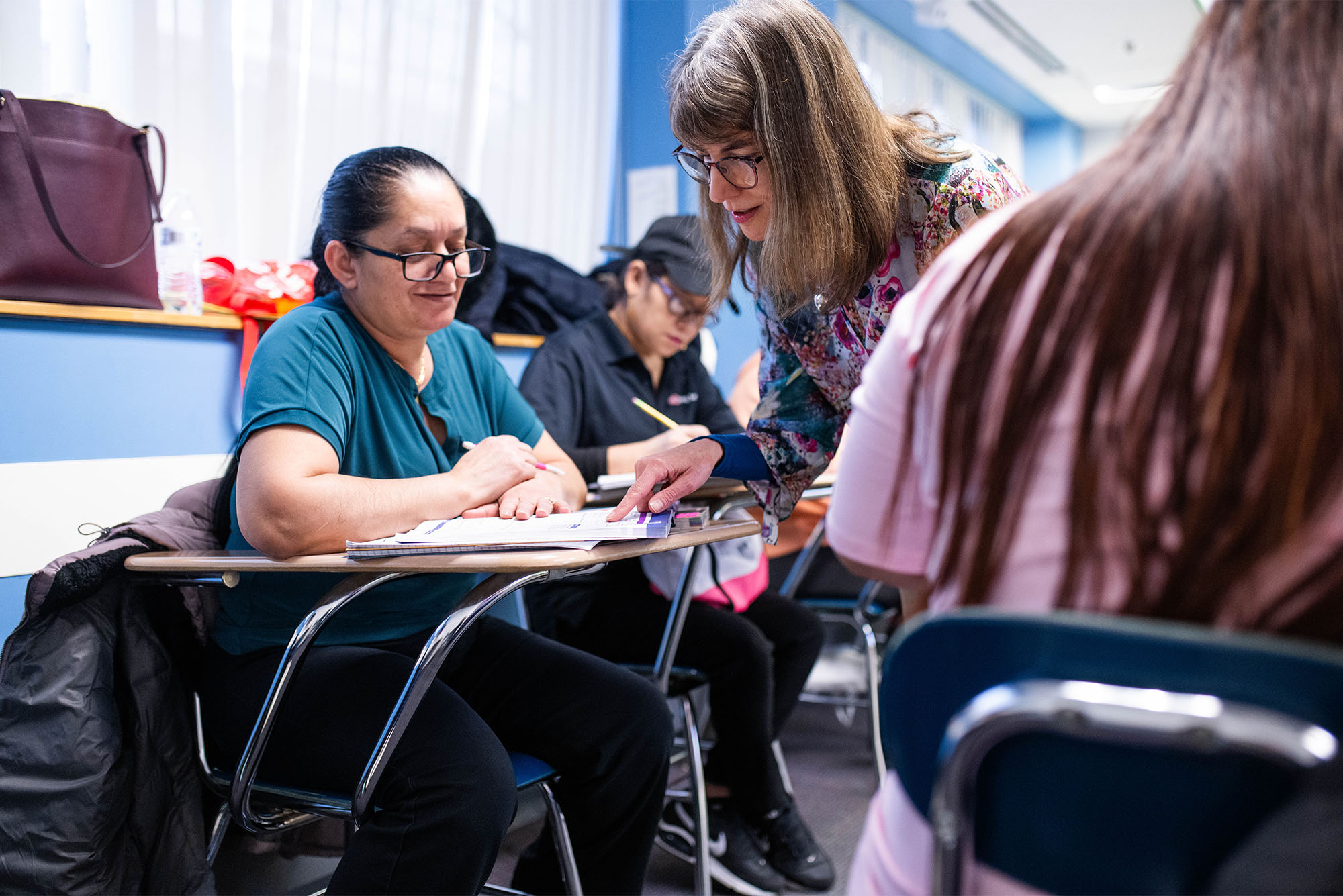
She says she’s been impressed with the workers’ dedication (some even asked for extra homework) and their commitment to building community and helping each other. “Their managers have said how they have noticed increased confidence,” says Giamei, beaming. “That was really important to me.”
In one recent class, they talked about shopping, covering topics like when to use the articles “a” or “an,” the difference between the verbs “need” and “want,” and how to use color as an adjective. Giamei says that sometimes students are more challenged by language points (like grammar and pronunciation) in English that vary only slightly in their native tongues. For instance, in Spanish, an adjective usually follows a noun (“a dress blue”), but in English, the adjective comes first (“a blue dress”).
Giamei reads the phrase “a purple skirt” out loud. “Skerrrrrt,” she says, and the class repeats. “That’s better,” she replies.
They then review the differences between “this,” “that,” “these,” and “those.”
“What is that?” she asks.
“That is a blue dress,” a student calls out.
“Good!” Giamei says. “He used ‘that’ because it is far away.”
Now, the lesson gets trickier. “What are these?” she says, pointing to pants, a plural noun, although in this case the word refers to only one item. “Aye-aye-aye,” a student responds, and the class laughs. They move on to practicing conversational English—asking and answering questions, handling money, how to talk about receipts.
Pomp and Circumstance

CELOP and Dining Services organized a small graduation ceremony for the employees on May 3 to celebrate the end of the course. The organizers invited students’ families, managers, and supporting staff to attend.
Jon Webster, director of Dining Services, says the ceremony is one of his favorite things his team does during the year. “I think lowering the barrier of communication so that we can all talk to each other is a great way to make friends, and a way to make a great and more productive work environment,” he said at the ceremony. “It’s not necessarily the most comfortable thing to learn a new language. So we’re really celebrating you guys taking the opportunity to do that.”
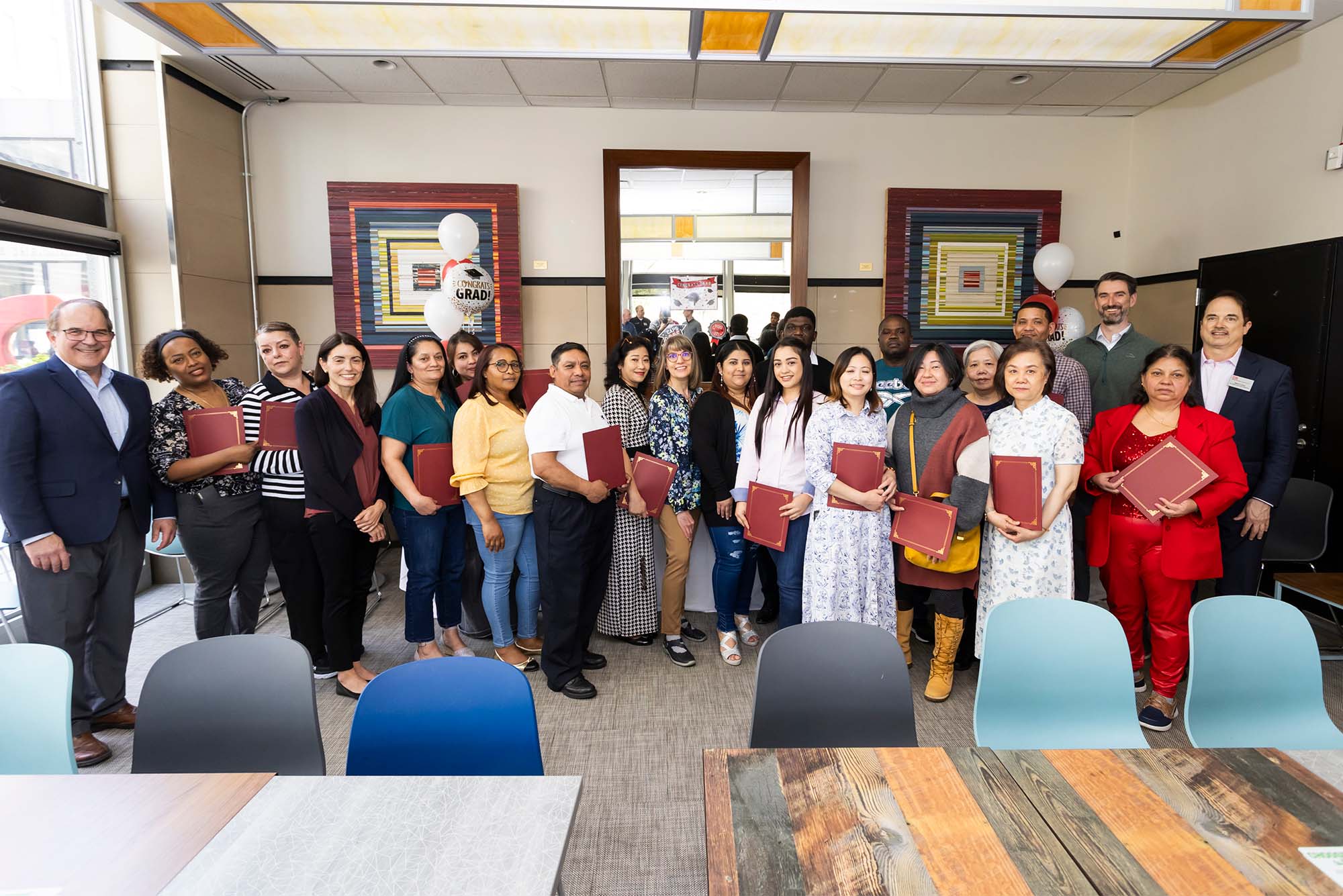
“We’re delighted this program is here,” says Paul Riel, associate vice president of Auxiliary Services, which oversees Dining Services. “We love the results of this program and like the way that people are able to do their work and get the opportunity to also study,” and take full advantage of the fact that BU is an educational institution.
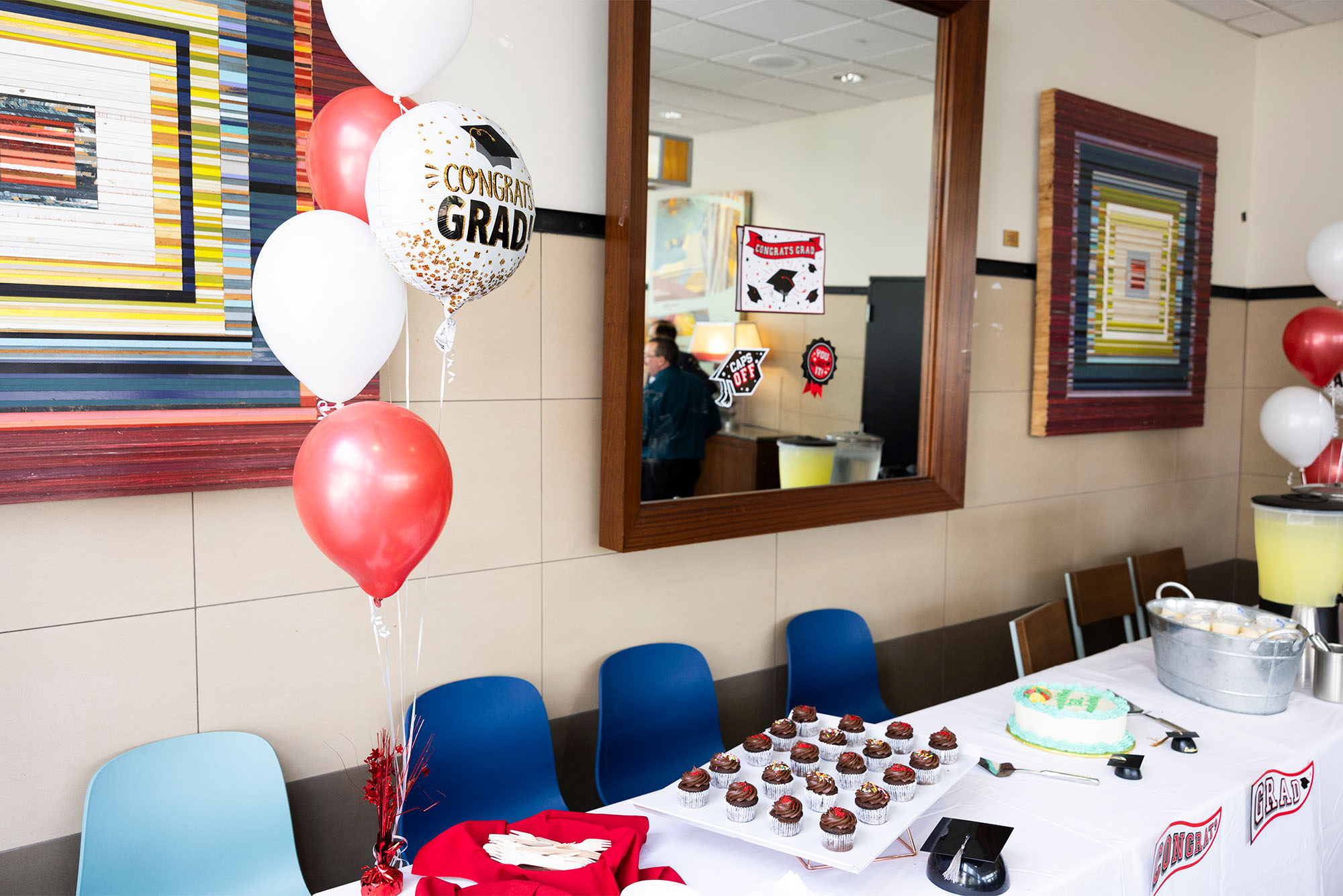
Mark Yates, food service director at Warren Towers, says he’s seen a “tremendous improvement” in the English skills of his employees who’ve taken the class. “It’s not just a benefit to me as their manager, it has helped them communicate with students. For example, they can answer questions about the menu. They’ve also told me it has helped them feel a lot more comfortable in their daily lives, like at the grocery store.”
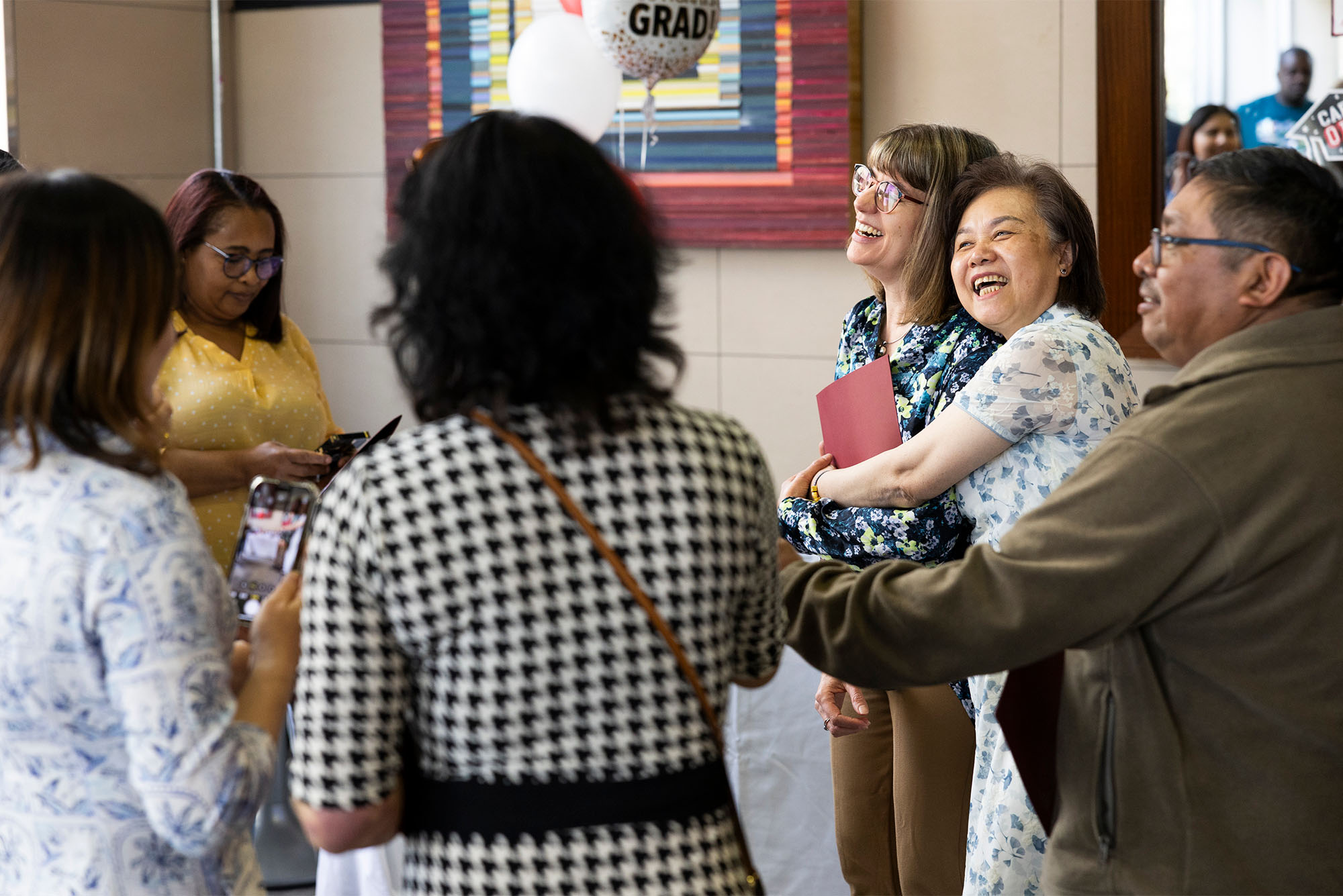
Graduate Witney Chow, who is from Myanmar, says she learned about the class from her manager and wanted to sign up to improve her English. Before, she says, “I was nervous, afraid to speak. Now, people can understand me more.”
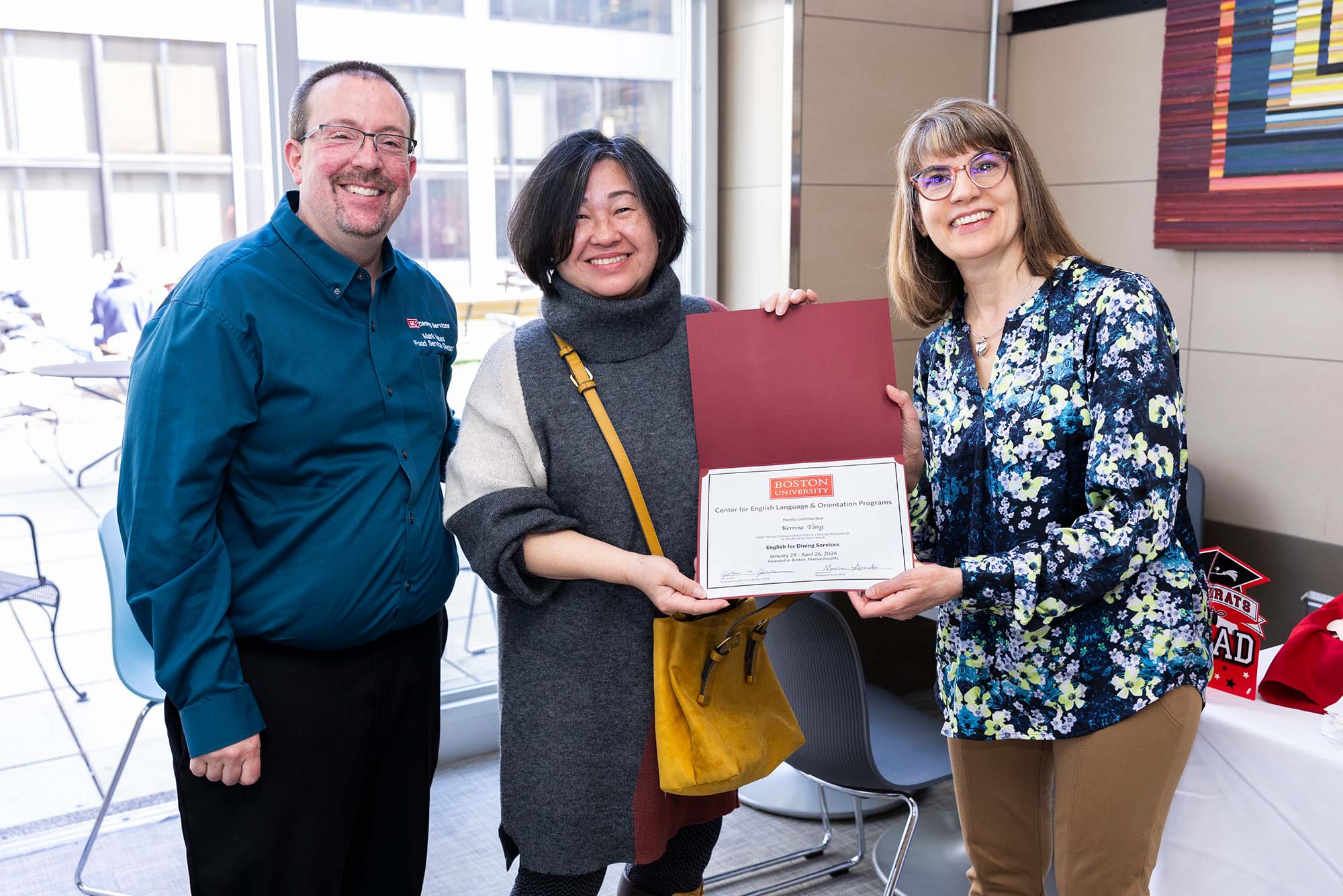
Classmate Tang volunteered to deliver a short speech at the ceremony and worked with Giamei to help translate it. “This course is a turning point in my life,” Tang said, as she read carefully from a piece of paper in front of the audience. “Now, I dare to speak. I learned English grammar, and I am confident to take further steps to improve my English skills. Thank you for opening doors.”

Comments & Discussion
Boston University moderates comments to facilitate an informed, substantive, civil conversation. Abusive, profane, self-promotional, misleading, incoherent or off-topic comments will be rejected. Moderators are staffed during regular business hours (EST) and can only accept comments written in English. Statistics or facts must include a citation or a link to the citation.